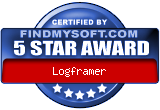Results Based Management (RBM)
As a next step in the evolution of logical framework approaches, Results Based Management or RBM tries to respond to a number of issues of the PCM and LFA methods. People often ask what the difference is between PCM or LFA and Results Based Management. In a sense, you could say that RBM is PCM done right. It provides more tools and directives on what you should do to ensure that you really design your project in a participatory way, or to make sure that you really think about assumptions and risks.
RBM is also critical of many donors’ focus on inputs (funds and resources) and activities, and promotes a shift towards the results of the project: its tangible outputs, its effects and its impact. That is the ‘Results’ part of RBM. As for the ‘Management’ aspect, RBM provides a number of tools to monitor the performance of your project. Are you getting the results you wanted? How can you be sure? How many resources do you use? These are the questions to which RBM can give an answer
Compared to its predecessors, RBM also takes more into account that the context or environment in which you’re working is dynamic and influences your project – in positive ways but also in negative ways. RBM stimulates you to think about assumptions and risks, not just at project design time, but over the whole course of your project.
RBM also tries to step away from the top-down or project manager’s view of PCM. It takes a step further than the classic idea of participation that limits itself to questioning the beneficiaries or stakeholders in order to determine the project’s objectives and other elements necessary for the design of the project. In RBM, partners and beneficiaries share the responsibility of making the project a success together with the lead NGO.
Results Based Management also uses the idea of the learning cycle: learning from practice (past projects) using the information gathered from the different monitoring and management tools and from evaluations and analyses to develop new strategies and new projects.





Recent comments